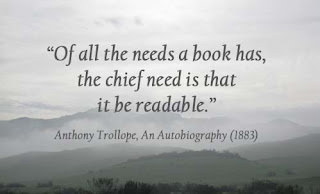I still remember the first time I read the following:
“I know that you believe you understand what you think I said, but I’m not sure you realize that what you heard is not what I meant.” (Attributed to Robert McCloskey, State Department spokesman)
That statement stunned me. It had never occurred to me that human beings could be on such different wavelengths despite making an effort to communicate. In fact, that statement shook me up. I began wondering how many times other people had misinterpreted my words, and how many times I had misunderstood others.
Here’s something else that upsets me: I’ve heard that eighty percent of what we communicate is misunderstood. Eighty percent! The ripple effects could be staggering.
And here’s this from Kendall Haven:
“It has long been a principle of writing that, if there is any possible way for readers to misread and misinterpret what you write, they will.” (Kendall Haven, A Storied Career)
I had no idea. How about you?
And, perhaps even more important: What’s a writer to do?
Well, I gave you a few tips last week. (Click on Will readers find your writing clear and concise?)
Here are a few more:
Ask yourself if you’ve used technical or foreign terms your readers might not understand.
Eliminate lingo—Christianese, for example—which can be distasteful for some readers because it’s an insider language; it can make others feel like unwelcome outsiders.
For other readers, the meaning of the Chritianese jargon might not be clear, even if it’s clear to you and your circle of Christian friends. Avoid phrases like “I’ve been washed in the blood of the Lamb.” Instead, use everyday language to tell your story clearly and precisely.
Here are more examples of Christianese to avoid:
- living in darkness
- redeemed from a dark past
- decided to follow the Lord
- cast your burden
- bear fruit that lasts
- climb the mountain
- walk through the valleys
- ruled by the flesh
- washed by the blood of Jesus
- the enemy
- slave to sin
- washed as white as snow
- nothing but the blood of Jesus
- walk of faith
- taking your quiet time
- put a hedge of protection around [a person]
Set your story aside for a few days, then read it aloud, putting yourself in your readers’ shoes. Be alert to what might confuse or cloud.
Then reword everything that could send an ambiguous or confusing message. Make it easy for your readers to understand.
Kendall Haven also said this: “The purpose of . . . editing is to make the writing so precise that it cannot be misread or misinterpreted.” (Kendall Haven, A Storied Career)
And please be convinced of this: Rewording and rewriting and editing are not punishment. Embrace the art and craft of it! (Click on Tell yourself rewriting is not punishment.)
Most
of all, have fun!







